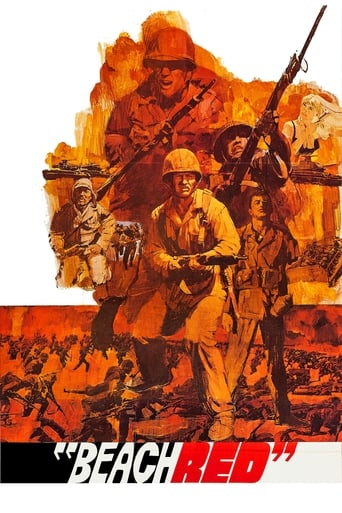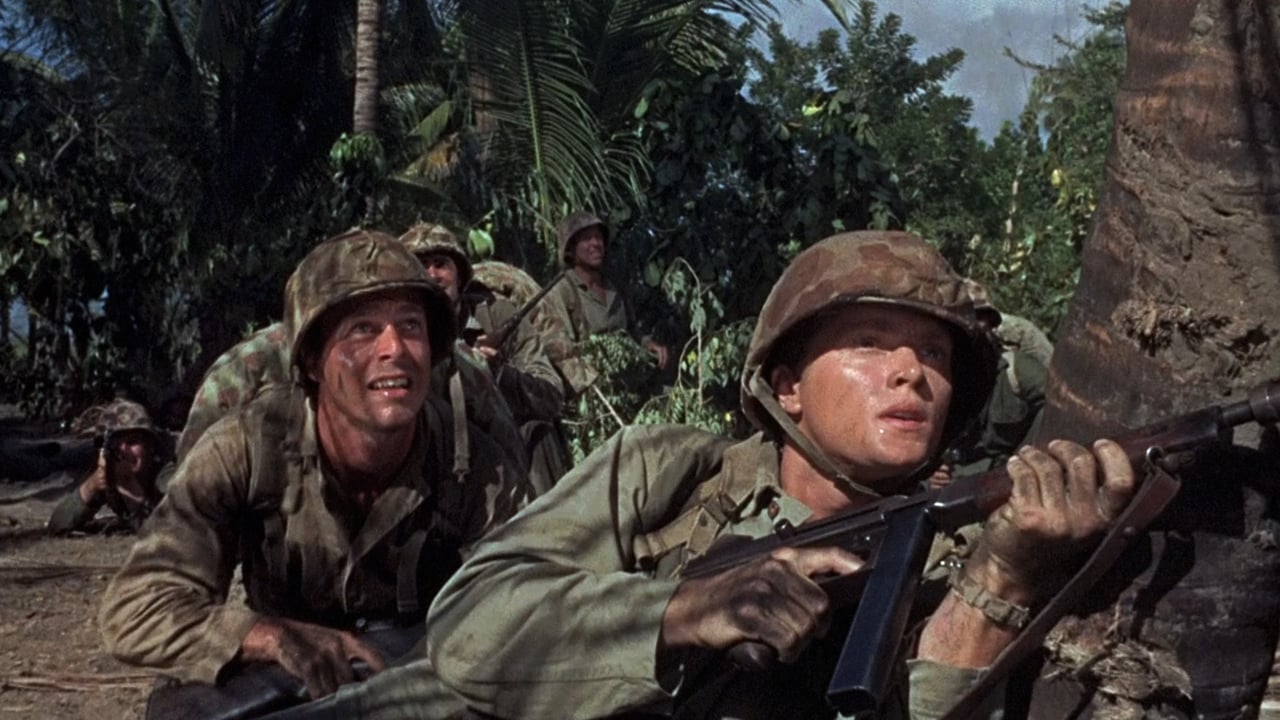martin-fennell
Very violent and at times, sensitive anti war film. Wilde proves once more his talents as a director. This is one of those movies, that although it isn't a favourite, I return to periodically. Many critics on IMDb have mentioned it's influence/similarity to saving private ryan and The thin red line. You can see where they're coming from. Although I don't tjhink it's in the same league, it's still a worthwhile companion piece. One thing I noticed. Rip Torn was the only actor who had what would be considered an army haircut.
grantss
This movie had heaps of potential, just a pity the execution was so clumsy.Very gritty and realistic war movie, especially for 1967. At that time war movies painted a very romanticized view of war. Here we get to see the horrors of it.Not only that, but writer-director-actor Cornel Wilde tries to humanize the soldiers, showing them in more peaceful times, and their thoughts and motivations. Even more ambitiously, he attempts to do this for soldiers on both sides, American and Japanese.However, there's intentions, and then there's deeds. The actual execution is very clumsy. The attempt to show the human side of the soldiers is mostly a failure. The daydream-bubble-like home sequences don't really give away much of the soldiers' characters. It's like watching several unconnected home movies, and very bland ones at that. Plus, Wilde does this so often and for so many soldiers you end up with (bland) information overload, and the interjections become irritating.There is also an attempt to show nature as counterpoint to war, but this is half-heartedly done.Performances are mostly pretty poor, and are another aspect that brings the movie down. Wilde is so-so in the lead role. Rip Torn gives probably the best performance of the movie, but still seems one- dimensional. Worst of the lot is Burr Debenning as Egan - incredibly irritating and unconvincing.Terrence Malick would later successfully execute the ideas of daydream sequences to humanize soldiers and nature as counterpoint to war in "The Thin Red Line" (1998). You can see the influences of this movie in that production. That might be Beach Red's lasting legacy, and that only.
perkypops
There are many wonders in this film.*An opening sequence of a beach landing with as much, if not more, intensity as Spielberg's later "Saving Private Ryan". *Unglamourised combat where both sides do what is necessary to stay alive. Action from close range or from distance telling the same tale but with a subtle difference in perspective. *Flawed characters the whole way through with not a hero in sight, and not a single frame wasted as we are given access to private thoughts, and private intimacies. *Unforgiving and lingering imagery allowing us the time and space to add our own flaws, our own intimacies, our own doubts to the conflicts we are watching.This is the futility of war in stark colour, played out by people who do not understand why it should be necessary to fight a war but are forced, by circumstance, to live it out until they too are fallen corpses or survivors for yet another day of 'action'.Cornel Wilde gets the balance spot on using characters and action to nullify any sense of justification for what we see. Like any voyeur we are made to feel guilty for daring to watch such private tragedy unfold. And yet the director gives us hope in so many subtle ways.This is a sadly underrated film which is up there with the best in the war genre.
Woodyanders
A platoon of American soldiers lead by the rugged, but humane Captain MacDonald (superbly played by Cornel Wilde) and the mean, bloodthirsty Gunnery Sergeant Honeywell (a chilling performance by the always excellent Rip Torn) embark on a dangerous mission to find a Japanese base on a remote island in the Pacific. Wilde's steady, assured, if rather ragged direction and the gritty, incisive script by Wilde, Don Peters and Clint Johnston astutely nails the chaos, horror and brutality of war: the movie opens on a gripping note with a fierce and harrowing protracted battle sequence, the violence is shockingly gory and graphic (arms are blown off, severed limbs litter the ground, mangled bodies are strewn about, and so on), the characters' thoughts serve as philosophical narration, the tone remains stark, frank and unflinching throughout, and there are poignant flashbacks for both the American and Japanese soldiers alike in order to show how everyone is basically the same. This picture further benefits from strong and convincing acting by a tip-top cast, with especially praiseworthy work by Burr DeBenning as hearty country boy Private Egan, Patrick Wayne as the naive, amiable Private Joseph Joshua Cliff, Jean Wallace as McDonald's sweet, bubbly wife Julie (Wallace also sings the hauntingly melancholy theme song), and Jaime Sanchez as easygoing smartaleck Private Columbo. Cecil R. Cooney's plain, no-frills cinematography really throws the viewer into the thick of the bloody combat and frightening carnage. Moreover, this movie earns extra points for its even treatment of the Japanese, who are shown as being just as scared and human as the American soldiers. It's this latter admirable component of compassion for all humanity which in turn makes this film so incredibly powerful and provocative.



 AD
AD



